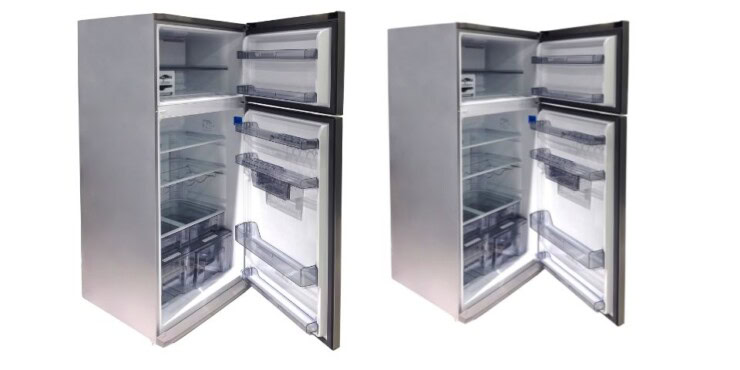Is it true that refrigerators need a special outlet? We often hear stories about refrigerators plugged into the same power source as stoves, dryers, and other appliances. It seems to work fine but is it a safe practice? Let’s find out.
Do Refrigerators Need Special Outlets?
Refrigerators don’t need special outlets. They actually can be plugged into any outlet. However, it’s best to have a dedicated circuit for your refrigerator, especially if it’s old and uses a lot of electricity.
The reason why refrigerators require their own circuit is because they use more power than most other appliances.
When you’re using an electrical appliance that takes up a lot of energy, it can cause problems with the rest of your home’s electrical system. This is especially true if you have other appliances in the same circuit as your refrigerator.
If there are several appliances in use at once, they could overload the wiring in your home, which means that not all of them would be able to run properly at once. If you want to keep all of your appliances running smoothly, then it’s best to install a separate circuit for your refrigerator.
What Kind of Outlets Do Refrigerators Use?
Refrigerators use 110/120-V (volt) plugs, which are different from the 120-V outlets used for lamps and other small appliances. If you plug a lamp into a refrigerator outlet, the circuit breaker will trip and the lamp will not work.
The reason for this difference is that refrigerators use more energy than other household appliances. They must have their own dedicated circuits so they don’t overload a circuit with other devices.
Does a Refrigerator Need a Dedicated Outlet?
Most refrigerators require a dedicated circuit. This means that the outlet in your home must be dedicated to the operation of the refrigerator and no other electrical devices can be plugged into it.
If your refrigerator does not have a dedicated circuit, it is possible that it could cause problems with other devices on the same circuit. To avoid this problem, check on the current draw of your refrigerator before deciding where to plug it in.
You can find this information by looking at its energy guide or by checking its owner’s manual.
Can You Plug the Fridge into any outlet?
The answer to this question is, yes and no. Yes, you can plug your refrigerator into any outlet, but there are some things to consider before doing so.
As long as the voltage is correct for your appliance and the wattage is sufficient enough for the load, there should be no problem with doing this. However, if the voltage or wattage is too low or high respectively, it will damage your appliance and could possibly cause a fire hazard.
A common mistake people make when plugging in their fridges is to use an extension cord. This is not recommended because it can cause serious safety risks such as overheating or fire hazards due to the overloading of electricity.
Extension cords should only be used temporarily until a permanent solution can be found like installing another circuit breaker or fuse box nearby so that it will not overload the current capacity of your house wiring system.

Refrigerator Outlet Requirements
Refrigerators must have a grounded three-pronged plug and be plugged directly into an electrical outlet. The outlet must be on the same circuit as the refrigerator and rated for 15 or 20 amps.
A surge protector is recommended for all appliances, but especially those with electronic components such as computers, televisions and refrigerators.
A surge protector will protect your refrigerator from power spikes and surges caused by lightning strikes or downed power lines.
What Happens if You Plug a Refrigerator in a Regular Outlet?
If you plug a refrigerator in a regular outlet, it will still work, but it will be inefficient. The motor will run faster and hotter than it should, and that can damage the compressor.
The power draw of a refrigerator averages around 1,200 watts, so using an extension cord or an outlet with insufficient capacity to handle that load can cause problems.
The best way to handle this situation is to get an outlet with enough capacity for the refrigerator. This will let you use the appliance without worrying about whether or not it’s working properly.

